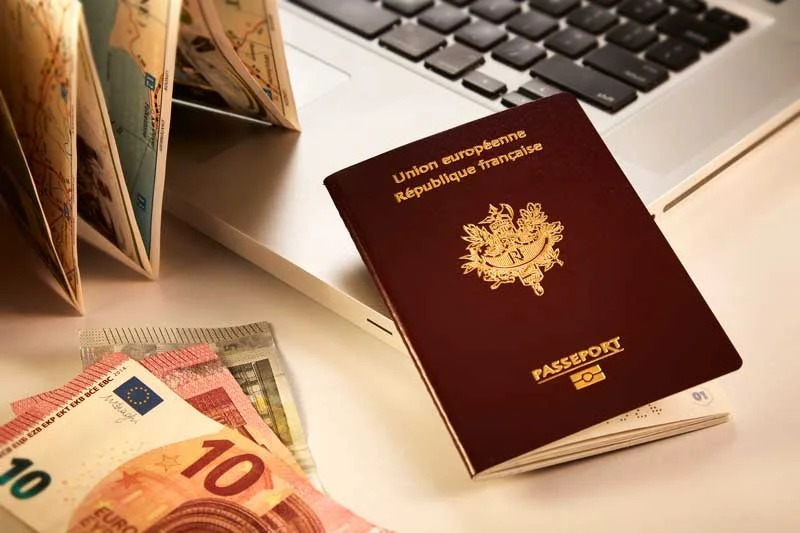France is enforcing a significant policy adjustment that will make it tougher for international residents with a history of unlawful immigration to get French citizenship, even if they have been residing lawfully there for five years.
This modification comes from new laws provided by French Interior Minister Bruno Retailleau, who stated that he was “proud” of the recent directives and explained them as an “assimilation circular.” The laws started on January 1, 2026.
Table of Contents
What Is Changing In The French Citizenship Procedure
Conventionally, all international citizens could apply for French citizenship after five years of lawful residence or 24 months if they concluded their studies at a French institution. Candidates are required to indicate:
- Basic skill in French (least of B1 level)
- Understanding of French culture and values
- A clean criminal history
- Evidence of integration into the community
Hence, under the new laws, even people who satisfy these requirements may be refused if they have formerly entered France unlawfully or overstayed.
Reasons For The Sudden Change
The policy adjustment is intended to redefine what it implies to become French. Retailleau debates that naturalization has been traded as a bureaucratic checkbox and, more importantly, compensation for time spent in the nation for too long. The new policy intends to set higher records and facilitate a profound assimilation.
While the rule remains unchanged, the government is changing how it is used, mostly by prefectures, which play an essential gatekeeping role in the naturalization procedure.
Should you find this piece engaging, we kindly invite you to explore the wealth of content in our other articles:
- Ways To Indicate Evidence Of Financial Sufficiency As International Student In Canada
- Essential Tips for Preventing Canada Visa Scams
- New US Visa Laws: 10 Key Changes For Students, Employees, And Travelers In 2025
- How to Prove That You Will Exit Canada After Your Stay or Studies
- Canada Residency Commitment Requirements for Permanent Residence
Significant Features Of The New Assimilation Circular
- Unlawful immigration record: Any prior unaccounted visit to France can make you ineligible as a candidate.
- Stringent assessment: Prefectures are required to evaluate eligible candidates more strongly.
- New civics examinations: Bound to multi-year residence permits and affected by the Darmian law.
- Language conditions: Boosting of the B2-level French language condition.
How The Procedure Functions
- Prefectures: Assess first requests and specify qualification.
- Only chosen requests are sent to the Ministry of the Interior for last authorization.
- Requests considered undesirable are filtered out on time and not presented nationally.
Who Will Be Impacted Most
The change could majorly affect:
- Long-term international residents who formerly landed without documentation.
- Asylum seekers who later regularised their residency
- Employees who have legalized status via employment contracts under the past easy guidelines.
With more than 5 million international residents in France and above 100,000 naturalizations in 2024 alone, the new law could impact thousands yearly.
What This Implies For Future Candidates
Potential nationals are required to currently:
- Indicate a robust grasp of French records and values.
- Keep a pure immigration history.
- Ascertain integration beyond just language skills via cultural and civic involvement.
Even if candidates hold lawful documents now, a previous event of unlawful residence may result in refusal.
Why This Change Is Taking Place Now
This toughness matches wider immigration regulation actions in France. In 2024, Retailleau also demanded decreasing “regularization,” which enables unaccounted employees to legalize their stay through a job.
Rather than modifying the law, authorities are re-translating it more strictly, using administrative instruments to restrict access to French citizenship.
France’s Passport Power Still Stays Strong
Regardless of the limitations, French citizenship provides the following advantages:
- France rates 3rd worldwide in passport strength.
- Visa-free access to 151 nations
- A mobility score of 189
However, these benefits currently come with increased assessment.
In conclusion, France’s new citizenship policy highlights a turning point in its immigration guidelines. By concentrating on assimilation and penalizing previous unlawful immigration, even if settled, the government is forwarding a strong message: citizenship must be earned, not just awarded.
For people desiring to naturalize, this is the time to know the changing anticipations and get ready adequately completely.






